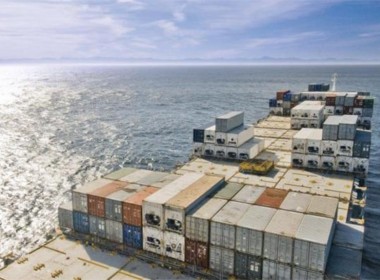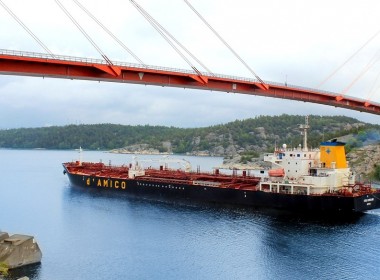IMO adopts revised strategy to reduce greenhouse gas emissions from international shipping

Member States of the International Maritime Organisation (IMO) have adopted the 2023 IMO Strategy on Reduction of GHG Emissions from Ships, with enhanced targets to tackle harmful emissions.
The revised IMO GHG Strategy includes an enhanced common ambition to reach net-zero GHG emissions from international shipping close to 2050, a commitment to ensure an uptake of alternative zero and near-zero GHG fuels by 2030, as well as indicative check-points for 2030 and 2040.
Levels of ambition directing the 2023 IMO GHG Strategy are as follows:
- Carbon intensity of the ship to decline through further improvement of the energy efficiency for new ships: To review with the aim of strengthening the energy efficiency design requirements for ships;
- Carbon intensity of international shipping to decline: to reduce CO2 emissions per transport work, as an average across international shipping, by at least 40% by 2030, compared to 2008;
- Uptake of zero or near-zero GHG emission technologies, fuels and/or energy sources to increase uptake of zero or near-zero GHG emission technologies, fuels and/or energy sources to represent at least five per cent, striving for 10 per cent, of the energy used by international shipping by 2030; and
- GHG emissions from international shipping to reach net zero: to peak GHG emissions from international shipping as soon as possible and to reach net-zero GHG emissions by or around, i.e. close to 2050, taking into account different national circumstances, whilst pursuing efforts towards phasing them out as called for in the vision consistent with the long-term temperature goal set out in Article 2 of the Paris Agreement.
Indicative checkpoints to reach net-zero GHG emissions from international shipping are as follows:
- To reduce the total annual GHG emissions from international shipping by at least 20 per cent, striving for 30 per cent, by 2030, compared to 2008; and
- To reduce the total annual GHG emissions from international shipping by at least 70 per cent, striving for 80 per cent, by 2040, compared to 2008.








